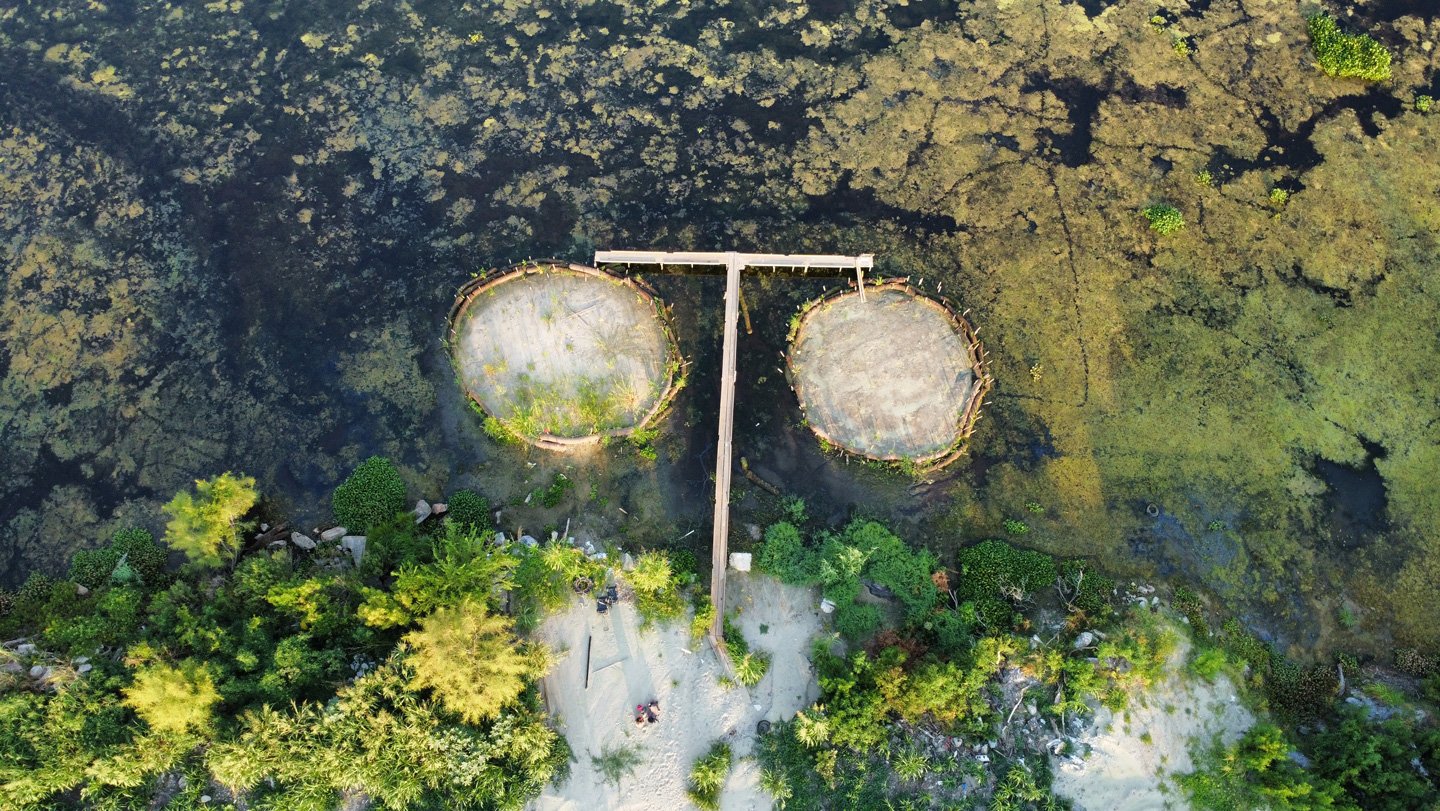In the 1960s, saltwater intrusion in a southeast Louisiana swamp killed the trees and plants that lived there. Now restored with freshwater, the swamp has become the perfect place for revegetation projects — particularly because healthy swamps can serve as a speed bump to slow hurricanes.
That’s one reason why the open water of Bayou Bienvenue, once home to cypress and tupelo trees, now hosts an island of native trees, grasses — and recycled glass. The artificial island is helping researchers understand a new approach to coastal restoration.
Created by a team of scientists and a glass recycling company, the roughly 10-meter-diameter island is made from a mix of glass ground into sand and Mississippi River sediment. A second island next to it, also dotted with plants, is made fully from sediment. The team wants to know if there are any differences in how the plants grow to figure out if the glass sand mixture could be a viable material for restoring coastal ecosystems.
As sea levels rise and coasts erode, “all coastal areas are going to deal with issues,” says Sunshine Van Bael, a community ecologist at Tulane University in New Orleans who is studying the islands. “We need our trees and our swamp marshes to protect us.”
Sea level rise and erosion sweep away sediment and inundate plants along the coast. The ecosystems there, such as wetlands, salt marshes and mangrove forests, act as a buffer between storms and areas further inland. To restore these damaged ecosystems, ecologists often rely on sediments dredged nearby. But there’s a limited amount available, and dredging can disturb surrounding habitats.
By using glass sand instead, restoration projects can reduce the amount of dredged sediment required and chip away at another problem: Millions of metric tons of glass end up in landfills each year instead of getting recycled.
That’s where Glass Half Full, a Louisiana-based glass recycling company that supplied the glass for the Bayou Bienvenue island, is working to fill the gap. When the company started in 2020, there were “virtually no glass recycling facilities in the state,” says co-founder Franziska Trautmann.
She and co-founder Max Steitz wanted to know if ground glass could be useful in coastal restoration, so they partnered with scientists at Tulane University. Now, the company has donated its glass sand to various research projects comparing plant growth in glass versus sediment. Overall, the studies, published throughout the year in Restoration Ecology, hold good news: In greenhouse settings, plants grown in a mix of glass sand and sediment seem to have the same survival rates as those grown in only natural substrates.
In one study, Van Bael and colleagues looked at wetland plants such as grasses and trees. In a greenhouse, they grew the plants in five-gallon buckets filled with either Mississippi river muck, glass sand or an even mix of the two, with the glass ground to different sizes. The plants grown in a coarse grind glass-sediment mix fared just as well as those grown in only sediment.
The findings mirror another groups’ study, which found that two salt marsh grasses native to Mississippi grow equally well in either a fifty-fifty mix of glass sand and fill soil or just fill soil. One plant, saltmeadow hay (Sporobolus pumilus), even grew successfully in a mix with 75 percent glass sand.
“They found success across a range of plants … so it does seem to hold a lot of promise,” says Christine Whitcraft, a wetland ecologist at California State University, Long Beach, who was not involved with any of this work.
Other studies found positive results with sand dune plants and mangroves. But more work is needed, Whitcraft says, including small-scale projects outside the greenhouse.
Work from a group at the University of the Virgin Islands in Charlotte Amalie suggests that mangroves’ success in glass sand might be species–specific, for example, while Van Bael reports that mangrove roots are less robust in the glass sand mix compared to dredged sediment. Location-specific studies are necessary to determine the optimal grind size and ratio for different coastlines, Whitcraft says, but the method is probably adaptable to other areas, such as the U.S. West Coast.
For now, Van Bael and colleagues will monitor the islands in Bayou Bienvenue for the next five years — with two more islands in the works.


